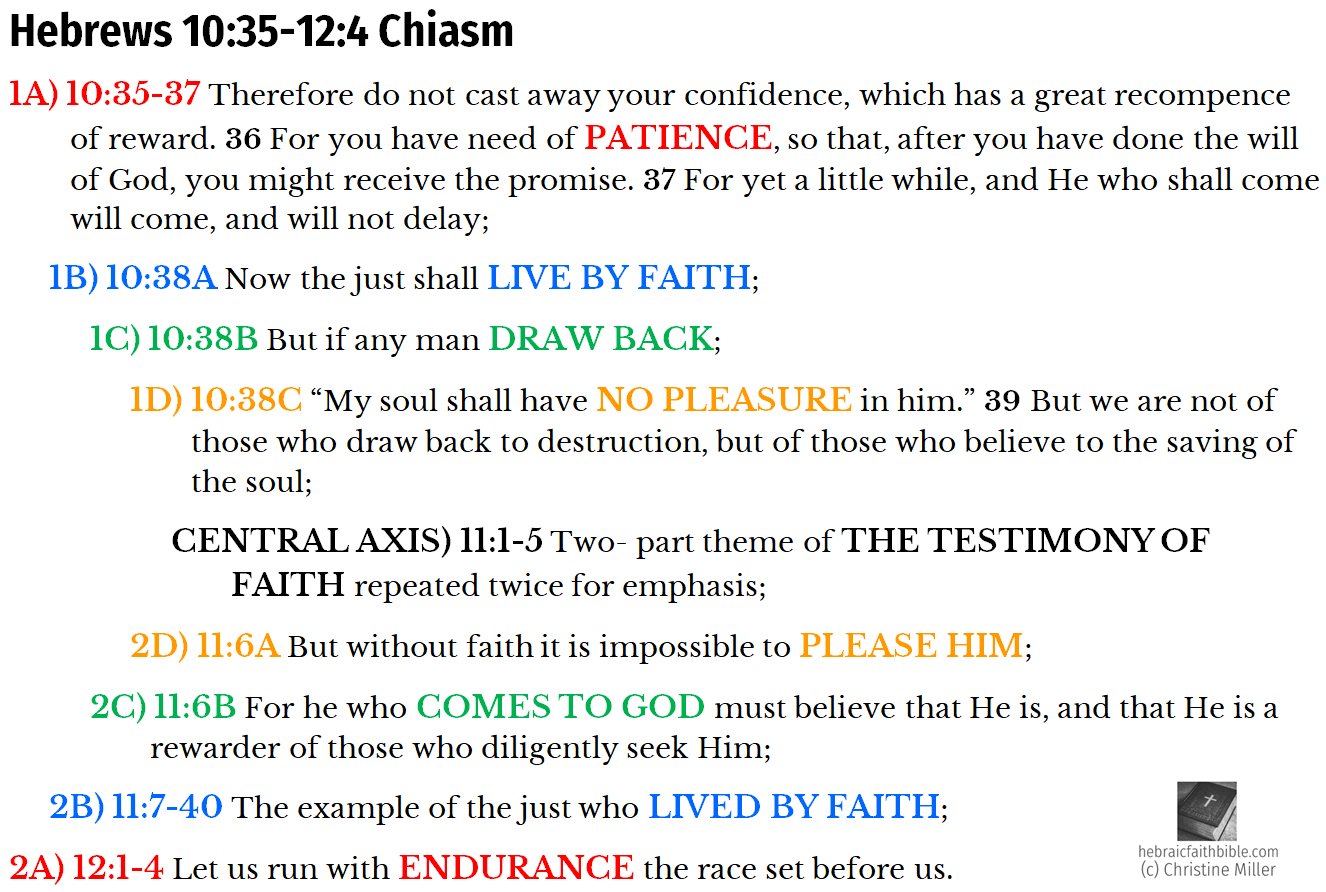Read Hebrews 11 here (text coming …) or at Bible Gateway.
Heb 10:35-12:4 Chiastic Structure:
But the just shall live by his faith. Hab 2:4 (also Rom 1:17, Gal 3:11)
This passage of Scripture inspired Martin Luther when he was still an Augustinian monk.
Now at this time a dispute arose among the German monks of the Augustinian order, and an appeal had to be made to the pope in Rome. But who would make the long journey? The brothers wanted Martin Luther to go, as he was able and eloquent, and had read all the Church fathers and the Bible. Thus in the winter of 1510 the desire of Luther’s heart for many years was realized. For Rome was the Eternal City, and the seat of the Vicar of Christ on earth, and Luther thought that to visit it must be like visiting the very gates of Paradise.
But cosmopolitan Rome shocked this earnest monk to the core of his being, who had trembled to handle the body and blood of Christ at his first Mass. Everywhere he looked, he saw the corruption and immorality which abounded in the clergy, from the lowest priest, unrepentant, performing Mass; and likewise unrepentant worshipers buying forgiveness of sins from the priests; even up to the papacy itself.
Concluding his business with the pope, he visited each and every one of the churches, and saw each and every place having to do with the history of Rome and with the Church. While ascending, on his knees, the twenty-eight steps of the Scala Santa of the Lateran, or sacred stairway—said to have been brought to Rome from Pilate’s judgment hall—reciting the Pater Noster (Lord’s Prayer) at each step—as each Pater Noster would grant him fifty years’ release from Purgatory—he heard, “The just shall live by faith,” spoken so loudly, it seemed to him, that he stood up and looked around for the speaker.
Many times he had read those words, in his studies of the Bible at Erfurt which no one else had read. The meaning of them burst across his heart and mind in an instant, like the lightning which once caused him to become a monk, was it only five years before? Immediately he descended the stairs, and leaving Rome, turned his face toward home.
What did the monk discover? The doctrine of “justification by faith,” which means that forgiveness of sins, instead of being got by fasts and penances and ceremonies, is given freely to those who have faith in Christ. “The just”—those who are made righteous—“shall live by faith”—are made so by a life of faith, not works. Martin Luther discovered that he could not be good enough to earn his salvation—it was this point which caused him terror—but that God knew this to be the case, and made complete provision for human sinfulness, and human salvation, in the passion, death, and resurrection of Jesus Christ, and this provision was available freely, by faith, not by Pater Nosters or “monkery”—it was this point in which he found peace at last.
The Story of the Renaissance and Reformation, pgs 104-106.
If there are questions, this is a good resource:
The Righteousness that is of Faith – Christine Miller


















Leave a Reply